Righting the wrongs
Inside Gerry Georgatos’ fifty years of social justice advocacy and his last crusade for the children of Banksia Hill
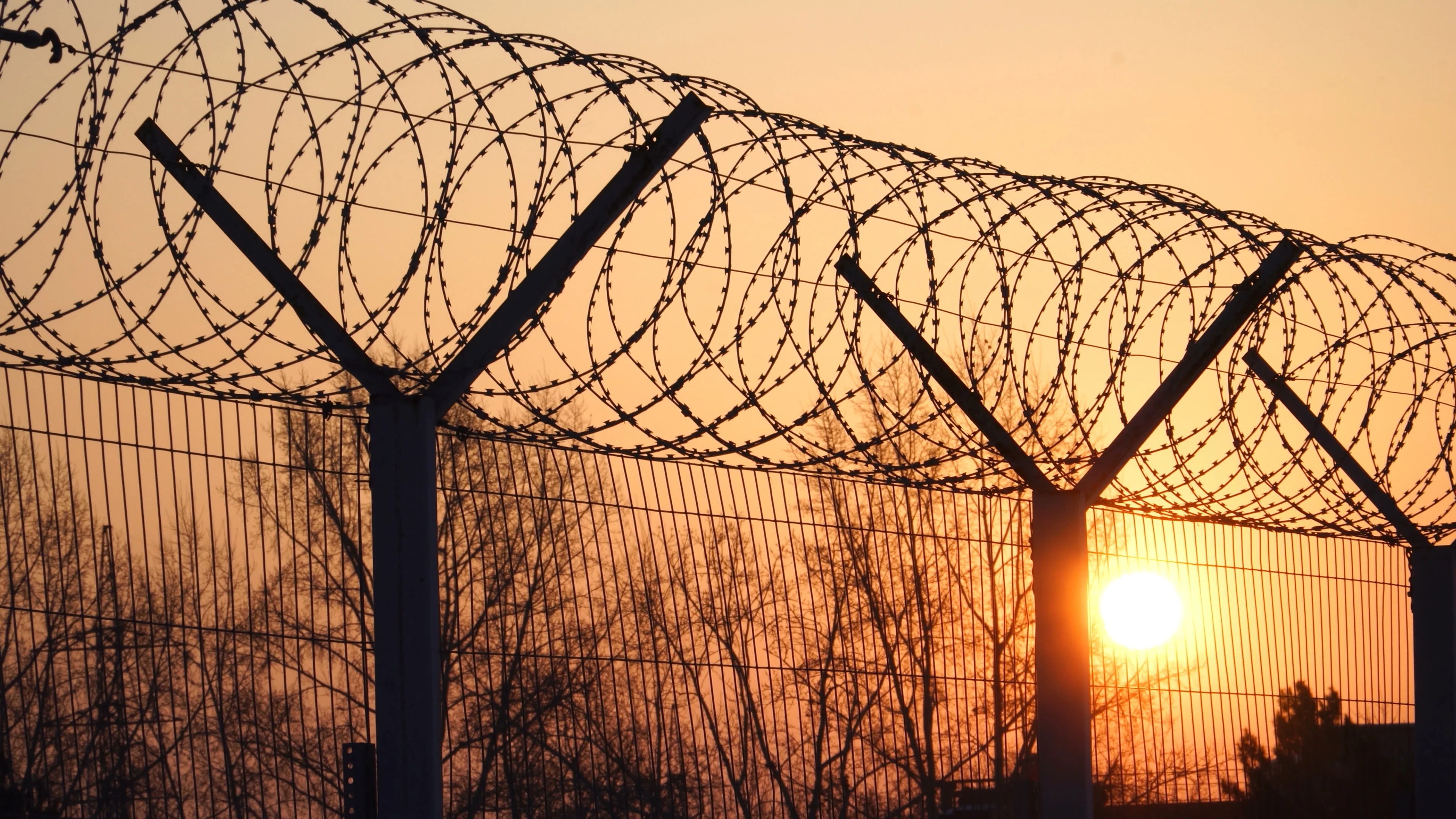
Every month, Gerry Georgatos stops by a nondescript duplex in Perth’s east.
Today he’s brought two bags of groceries and some Coles vouchers, paid for out of his own savings.
Nikkea Graham, half-asleep, thanks Gerry and takes the groceries inside. Then they set off for the real purpose of Gerry’s visit – wandering down to the local park to “talk life.”
Nikkea is 21. He was first imprisoned at 13, orphaned by 15, and spent most of his teenage years in Banksia Hill Juvenile Detention Centre or on the streets.
Once he broke into a Northbridge convenience store and waited to be arrested, hoping for food and a warm bed.
When he was 17, Nikkea, his partner Rikiesha, and his 12-year-old brother, all homeless, were told by a relative to see Gerry.
A life-long social justice advocate, Gerry had just established the National Suicide Prevention and Trauma Recovery Project (NSPTRP) after running a similar program for the federal government.
Gerry helped Nikkea get identity documents and find a place in public housing. Later he paid for and supported Nikkea through a construction ticket training course.
Nikkea and Rikiesha are expecting their first child in February. On their walk to the park, Gerry questions him gently about family, Centrelink, house inspections, and Rikiesha’s brother’s footy final.
Often, he sounds like a father.
“Everybody in your family looks up to you,” Gerry reminds him.
“They know you’re the solid one.”
The forgotten people
Gerry funds most of the NSPTRP's outreach work himself.
His expertise is in suicide prevention – the topic of his aborted PhD, which would have been his sixth university degree – but he also supports prisoners, the homeless, recent migrants, and remote Indigenous communities.
His academic portfolio includes masters degrees in human rights education, and social justice advocacy and civil rights arbitration, as well as degrees in philosophy, media and Australian Indigenous studies.
Gerry estimates in the past three years, the three-person NSPTRP reached 21,000 vulnerable Australians.
His motto is to believe in people until they believe in themselves.
“[Gerry] approaches every person with so much love and kindness,” NSPTRP director Megan Krakouer says.
“He’ll sit and listen to them before speaking, and then he works out ways to help.
"He does so much for forgotten people.”
The NSPTRP was given access to Banksia Hill for eight weeks in 2020.
In that time, Ms Krakouer says they helped reduce the population of one unit from 18 girls to seven.
They worked with the girls' families to address trauma and help ensure that, unlike Nikkea, they would have strong safety nets and stable homes to go to after release.
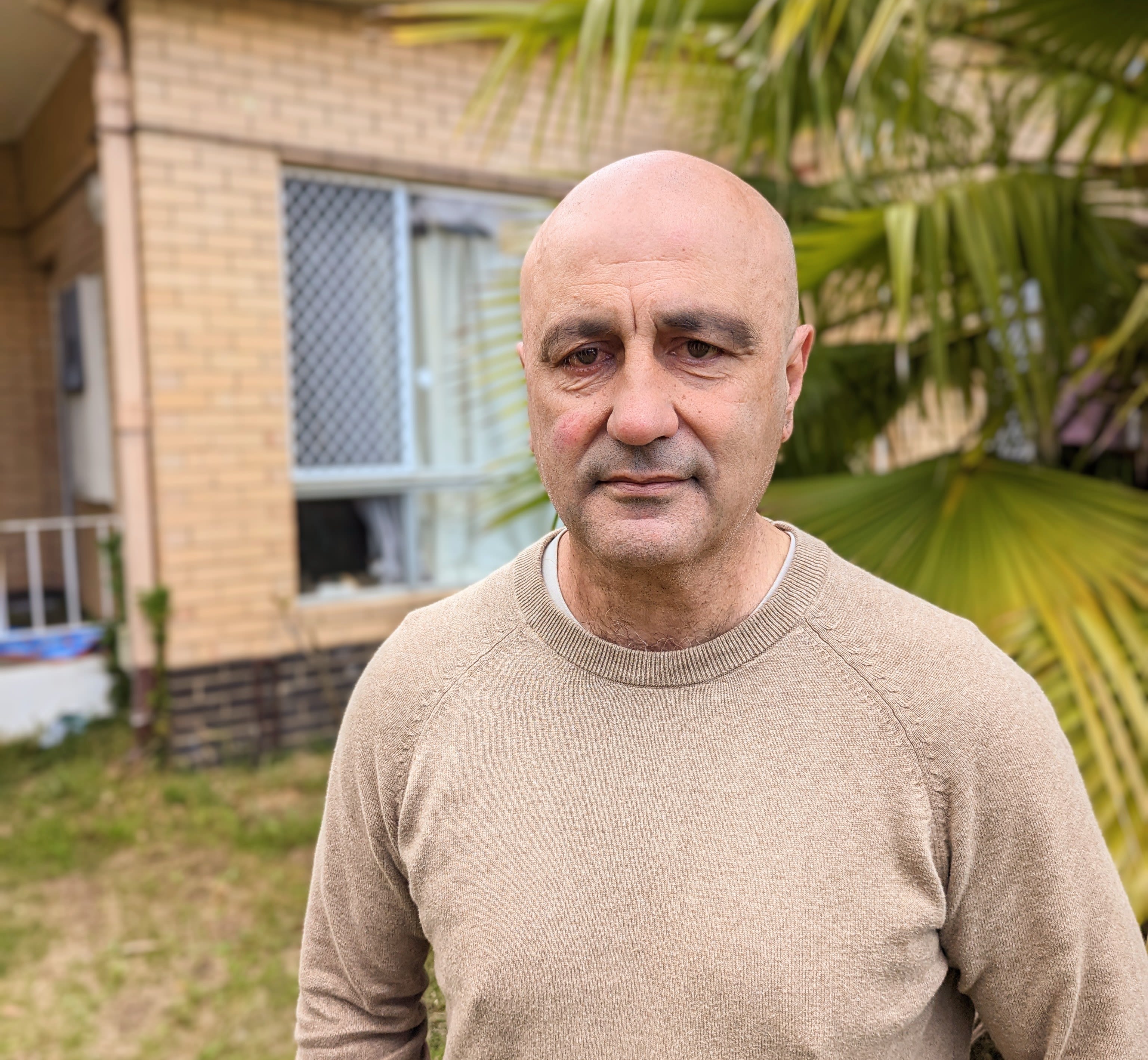
Gerry Georgatos tries to "keep families united, supported, and keep people alive." (Photo: Alex Di Rosso)
Gerry Georgatos tries to "keep families united, supported, and keep people alive." (Photo: Alex Di Rosso)
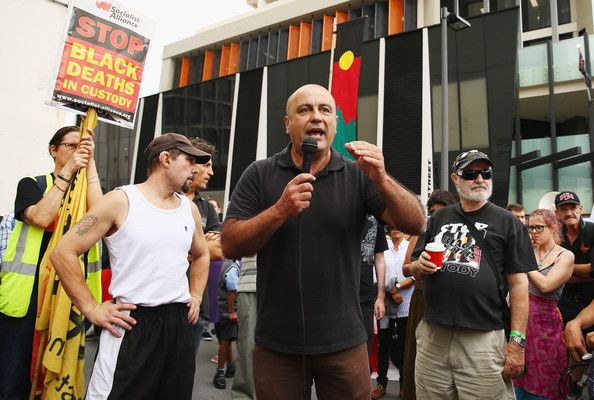
Gerry addresses a rally in Redfern, New South Wales in 2012. (Supplied: Gerry Georgatos)
Gerry addresses a rally in Redfern, New South Wales in 2012. (Supplied: Gerry Georgatos)
Fifty years of social justice advocacy
Parkinson’s disease forced Gerry to retire from the NSPTRP last month, aged 60, but he continues to check in on at least 20 families. People call him around the clock.
He has done this kind of outreach work his whole life, often unofficial and unpaid.
The eldest child of blue-collar Greek immigrants in Sydney, as soon as Gerry learnt English he became a spokesman for his community in dealing with employers, unions, and local councils.
Aged nine, he was a victim of child sexual abuse. He told no-one for 47 years.
Aged 11, he unsuccessfully lobbied employers to take responsibility for their immigrant workers dying from mesothelioma.
“I saw [mesothelioma sufferers] on their deathbeds wired up.
“[They're] looking sixty or seventy and they’re in their forties. It broke my heart.”
Gerry says he was trying to process experiences a child could not.
“I didn’t have a childhood in normal ways,” he says.
“At some point, I decided not to run away from the wickedness.
“It led me into a life of advocacy.”
Gerry has contributed to dozens of causes, often with his partner Jennifer and daughter Connie.
He has sent tens of thousands of computers and wheelchairs to impoverished children, helped free underage Indonesians from Australian jails, led students to the Kimberley to protest conditions at Curtin Immigration Detention Centre, and stood for the Senate for Julian Assange’s WikiLeaks Party.
A relentless campaigner
Gerry has an intense presence.
Deep-voiced and eloquent, he focuses on facts, backing up his arguments with an inexhaustible store of statistics and personal stories.
Former Nationals senator Nigel Scullion felt the full force of Gerry's advocacy while serving as Indigenous Affairs Minister from 2013 to 2019.
“[He’s] absolutely relentless," Mr Scullion says.
“We had a pretty robust relationship.”
Despite their clashes, the two men have a genuine and hard-earned respect for each other.
Gerry convinced Mr Scullion to fund a notification service for Indigenous Australians in police custody and to support ending imprisonment for unpaid fines.
“I wouldn’t have done it without Gerry constantly barking in my ear and generally being difficult,” Mr Scullion says.
“Bloody remarkable bloke. I don’t think I’ve met another Gerry.”
Gerry says always being in conflict with others can take him close to depression.
Nonetheless, he seems to be compelled to speak up.
Human rights lawyer Stewart Levitt, who chairs Gerry's not-for-profit The Georgatos Foundation, describes his friend's zeal in religious terms.
“If [Gerry] were Catholic, he’d be a saint. Probably a martyr.”
Mr Levitt would know better than most. He first met the outspoken campaigner during a defamation dispute between a mining company and the National Indigenous Times, where Gerry was an award-winning columnist.
Mr Levitt successfully defended Gerry when he was charged with contempt of court for allegedly repeating the contested statements.
“I just admired him because he was so selfless and self-sacrificing [and] so uncompromising,” Mr Levitt says.
“I had to help defend him against himself to some extent."
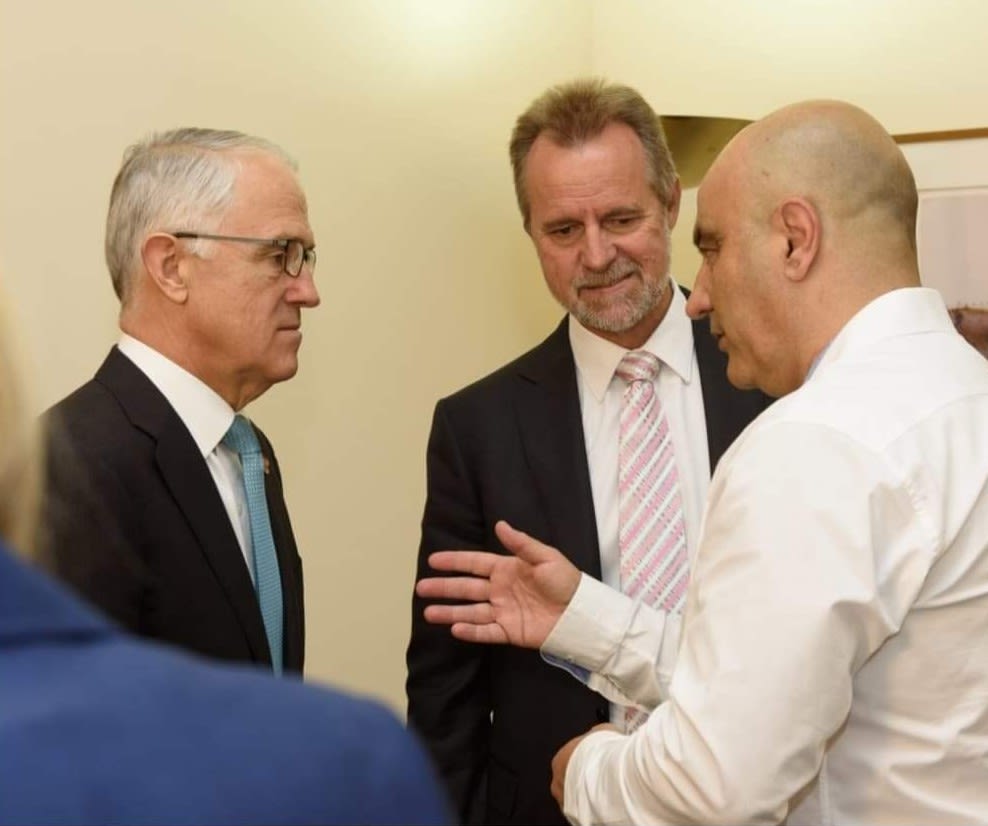
Former indigenous affairs minister Nigel Scullion (centre) speaks with Gerry and then-Prime Minister Malcolm Turnbull. (Supplied: Gerry Georgatos)
Former indigenous affairs minister Nigel Scullion (centre) speaks with Gerry and then-Prime Minister Malcolm Turnbull. (Supplied: Gerry Georgatos)
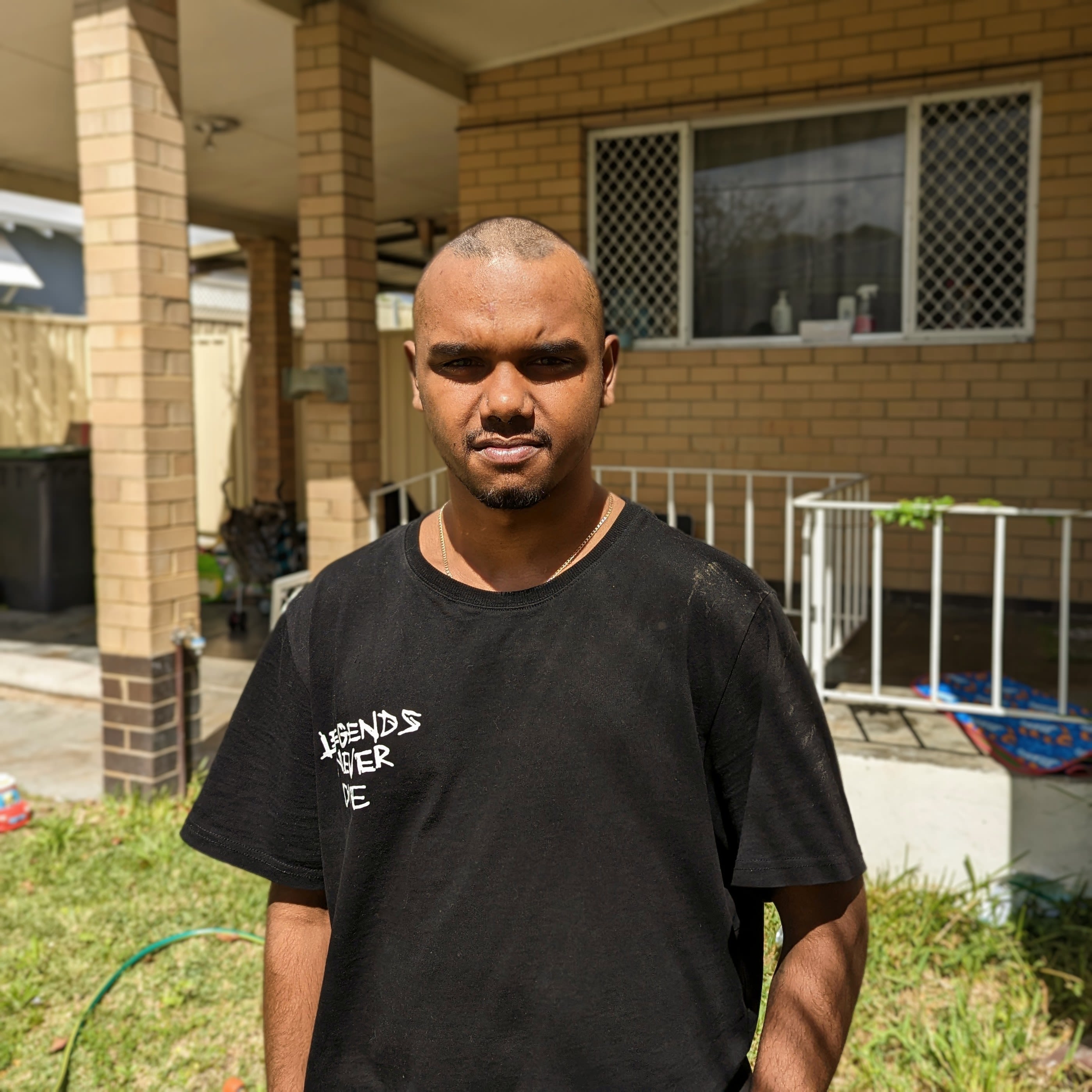
Nikkea Graham spent a total of nine months in Banksia Hill over five separate periods. (Photo: Alex Di Rosso)
Nikkea Graham spent a total of nine months in Banksia Hill over five separate periods. (Photo: Alex Di Rosso)
Shining a light on Banksia Hill
At Gerry’s urging, Mr Levitt is now leading a class action of almost 600 former detainees alleging mistreatment by the WA government at Banksia Hill.
It was the NSPTRP that convinced many of the plaintiffs to come forward.
“When you consider who these kids are, the disadvantage that they have and the lack of trust in the system … it couldn’t have been done without [the NSPTRP],” Mr Levitt says.
Nikkea Graham is one of the plaintiffs. He alleges he spent three weeks in a solitary cell in Banksia Hill’s Intensive Support Unit.
He says he was allowed out for half an hour a day in a caged, concrete-floored exercise area about the size of a cricket practice net.
“There’s just a phone on the wall and a flat ball,” he says.
“Might have been pumped once but it was flat then.”
Even in the main part of the facility, Nikkea says, education was less than an hour a day of pre-primary level English.
The Department of Justice declined to comment on individual cases. A spokesperson stated that a new trauma-informed, rehabilitation-focused care model has been developed for Banksia Hill and the facility has a highly qualified staff of 31 primary and secondary school teachers.
Ms Krakouer says the class action has already shone a light on conditions in Banksia Hill.
“In the absence of political will it is in our interests to compel change,” she says.
“And change can be compelled in a court.”
With his health deteriorating, Gerry sees Banksia Hill as “in a sense, the last crusade.”
“Whatever drop of me is left, there has to be some drop that goes towards supporting others.
“If we get it right with kids … we can start getting it right for adults.”
Back at the park, Gerry talks about finding a new job for Nikkea.
Even though he's been out of prison for four years and is about to start a family, Nikkea was sacked as a traffic controller after skipping work to talk to the ABC’s 7:30 program about Banksia Hill.
There’s a snag with the new job. Nikkea smoked marijuana the previous weekend and won’t pass a drug test this week.
“You’ve got to do better for [your child],” Gerry tells him.
“You can’t be spending $50 on a cone.”
They hug and start walking home.
“You’re on a journey forward, not backward.”